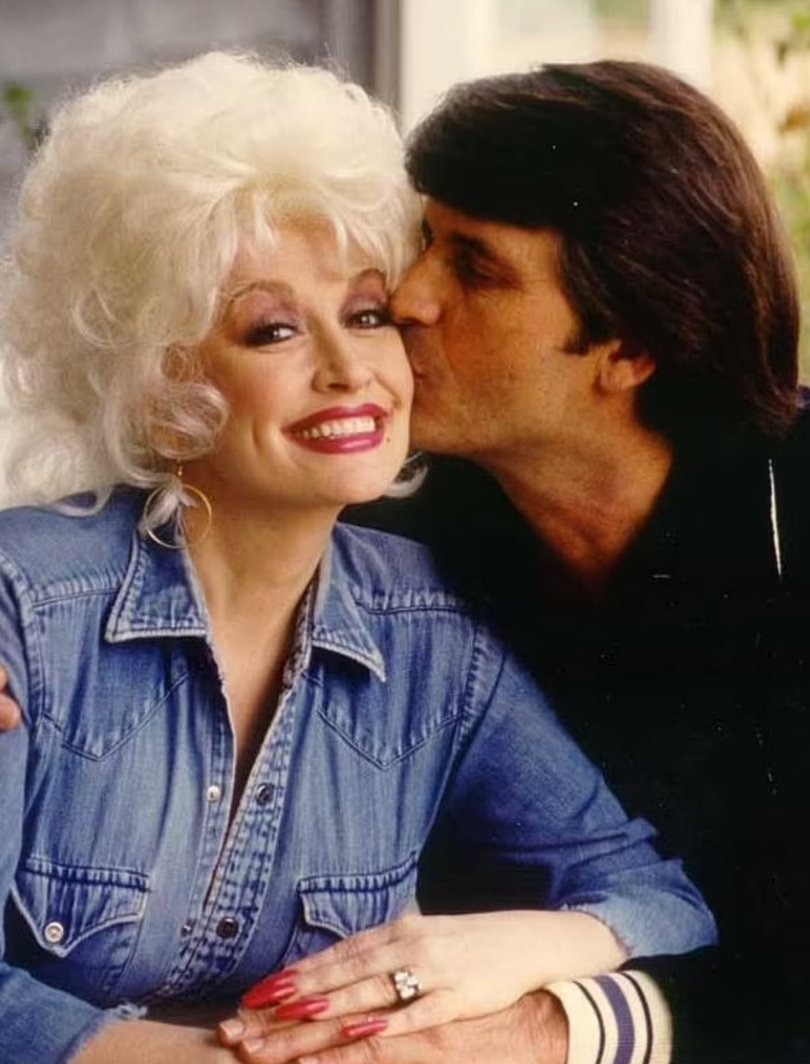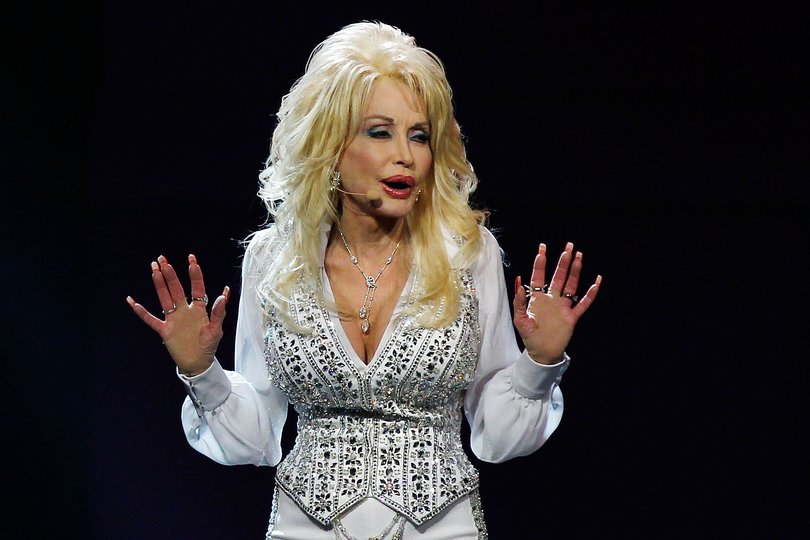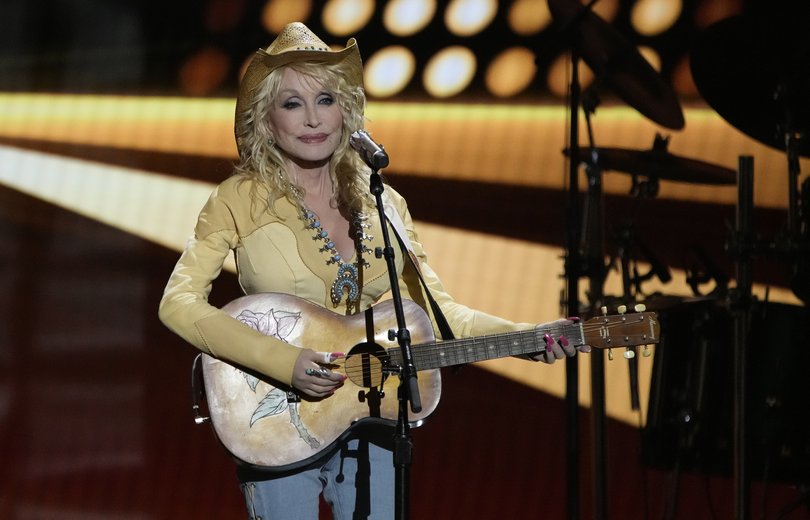Dolly Parton has always been unapologetically herself, it’s why she’s so iconic
Elvis Presley wanted to record what came to be one of Dolly Parton’s most famous songs, but the deal terms was unacceptable to the then young female singer. She stood her ground, and it worked out even better.
Exhale, because Dolly Parton is going to be fine. Those panicked prayers were premature as the pop culture legend fronted cameras and asked, “Do I look sick to you?”
She did not. She looked every bit herself – low-cut red top, blond hair, purple eyeshadow. She was Dolly, and she was here to assure us that she wasn’t going anywhere.
Parton has always been completely herself, which is one of the reasons why she has had an outsized impact on pop culture, and endured as one of the most recognisable icons of the past century.
Sign up to The Nightly's newsletters.
Get the first look at the digital newspaper, curated daily stories and breaking headlines delivered to your inbox.
By continuing you agree to our Terms and Privacy Policy.It’s the look – big hair, big smile, big energy – and the songs including Jolene and 9 to 5, the side hustles and the belief that she should always be herself, and to never back down.
She was born in 1946 as the fourth child among 12 to dirt poor parents in the backwoods of Tennessee. The family lived in a cabin with one bedroom, but she still had a nurturing childhood, learning business smarts from her father, and music from her mother.
Parton was performing on local TV and radio by the time she was 10 years old, and used to busk while waiting for the bus home after appearances on The Cas Walker Show.

In 1973, she wrote I Will Always Love You as an ode to her former creative partner and mentor Porter Wagoner, from whom she had recently parted. It was a massive hit for Parton but at one point, Elvis Presley had wanted to record it.
“I was so excited, I told everybody I knew, ‘Elvis is going to record my song’,” she told CMT in 2006. It all was set to go ahead, the Presley team even arranged for Parton to sit in on the session but then Presley’s infamous manager, Colonel Tom Parker, got on the phone to Parton.
Parker told her the rule was whatever Presley recorded, he took half the publishing rights for it. Parton wasn’t having it. “I was really quiet,” she said. “I said, ‘Well, now it’s already been a hit, I wrote it and I’ve already published it. This is the stuff I’m leaving for my family when I’m dead and gone.
“‘That money goes in for stuff for my brothers and sisters and nieces and nephews, so I can’t give up half the publishing’.”
It was a deal-breaker for Parker and Parton, and Presley pulled out. Parton said she cried all night that day, and even though others told her she should’ve just relented because it’s Elvis, she knew in her heart she couldn’t do it.
She wondered what he would’ve sounded like. “But anyway, so he didn’t (do it). Then when Whitney (Houston’s 1992 version) came out, I made enough money to buy Graceland!”
Parton always knew her own mind, and that included being the director of her distinctive image, no matter what other people said. It is hyper-feminine and unapologetically over-the-top, and she was transparent about any plastic surgery she had done (“It costs a lot of money to look this cheap,” she once joked).
But you always got the sense Parton wasn’t dressing up for someone else, or the audience. It was always for her.

In her 2023 book, Behind the Seams: My Life in Rhinestones, she wrote, “I always loved make-up. I wanted to be pretty. Back then, any woman who wore make-up in the mountains was considered trashy. But I didn’t care.”
She recalled how she had to defy her father and her grandfather, even if it meant getting her “arse whupped”, and again when the music industry in Nashville told her to tone down her look or choose a different wardrobe.
“I never listened to any of that,” Parton wrote. “From early on, I loved the big hair and make-up, the long nails, the high heels, the flashy clothes, and – as soon as I could afford them – the rhinestones!”.
Her get-up wasn’t armour, it was her interiority worn on the outside - “My clothes and make-up also reveal the real me. Maybe they’re both ‘made up’ but they reflect my innermost self, my own personal truth.”
She cited old Hollywood star Mae West as a role model – not just for being a petite platinum blonde bombshell but for her business acumen. West owned her own production company at a time when the capital of entertainment belonged strictly to the men.

One of the things that often surprise people about Parton is in addition to being a recording artist and songwriter (by her own count, she’s penned more than 3000), she was, like West, an owner of a Hollywood production company, Sandollar Production, founded with her former manager Sandy Gallin.
Through Sandollar, Parton was a producer on Buffy the Vampire Slayer, both the film and the series, the Father of the Bride movies, Straight Talk, and the 1995 version of Sabrina.
Last year, Sarah Michelle Gellar told Us Weekly that it was Parton who convinced her to consider reprising the role of Buffy for the upcoming sequel series, which is at pilot stage.
“I mean, like, if Dolly Parton is going to call me, I’m always available to take a phone call from the queen,” Gellar said.
Parton wasn’t day-to-day involved on the original series, but she has previously said she did consult from Nashville. “I didn’t get to meet all of the people, but I wanted them to know that I was there for them, I was proud of them, and they were doing a great job,” she said.
Parton added that she was excited for the sequel, so if nothing else, she has to stick around for that.
The video in which she declared herself very much alive and kicking was captioned, “I ain’t dead yet!”

